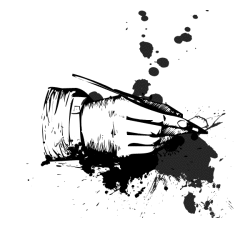Like most semesters, I assign a lot of writing despite my heavy teaching load. However, this semester I have spent a bit more time discussing what makes social science writing different from what they might have encountered in other classes (e.g. why MLA is inappropriate for our class). This blog post will discuss some of my concerns and thoughts regarding teaching social science writing.
A few premises I want to get out of the way. I think effective writing across the disciplines is important. There are a lot of issues with student writing. For example, political scientist Michael Allen has a good post on passive voice. Like Steven Pinker, I’m against academic gobbledygook. I understand that basic skills in writing and research are difficult to learn and just as difficult to teach. For instance, at Kutztown, the other sociology faculty and I created a guide to writing academic (sociology) papers on our webpage. However, a persistent problem is the lack of discipline specific training in writing.
My goal is to make students not just critical thinkers, but much more rigorous thinkers. Not only do I want my students to be better communicators, I want them to be accurate writers. So here are just some of the issues I encounter every year that is specifically tied to social science writing.
- Use of Sources
- We live in a world where good writing is often more important than good research. As Michael Chabris explains on Salon, popular nonfiction work such as Malcolm Gladwell’s fails to meet the rigor social science. A criticism of Gladwell is his cherry picking of studies. Our students do something similar. They find a quote in a text to ‘augment’ their writing (rather than build an argument based on existing research results and methods, or theory). When I’ve asked students to construct literature reviews, very few actually survey the research. Most structure their literature reviews author-by-author plugging in quotes that include the terms and concepts they want to write about. Here the quote is a crutch. They’re augmenting their writing rather than building a foundation for an argument that is grounded in the research. That’s not to say what my students are writing aren’t relevant, interesting or significant. However, the way they are using sources tends to emphasize the significance of what they are saying, rather than provide evidence that what they are saying is reliable and valid.
- Generalizability and Importance
- Sociologist Robert Merton in his classic work Social Theory & Social Structure, discusses (or grossly generalizes) different approaches to research. For example, Merton suggested that, Europeans take the position: “We don’t know that what we say is true, but it is at least significant.” While the Americans take the position: “We don’t know that what we say is particularly significant, but it is at least true” (pp. 494-495). As a qualitative and critical researcher with postmodern inclinations, I tend to agree with criticisms of positivist social science. However, I believe that significance (or social relevance) and truth (validity/reliability) are both important. The balance of those two sides in research is what makes us social scientists.
- Unit/Level of Analysis
- When my students write about inequality, they do a fairly good job emphasizing it as a social problem. However, a common problem is that many will mention things such as racial segregation in the United States and slums in the developing world in the same paper. There’s no unit of analysis. There’s also no sense of level or scale. This is linked to the aforementioned problem of precision, validity and reliability. However, it is also connected to the disconnect between course content (information) and the notion of research. Student papers spend a lot of time reporting facts, rather than transforming that information into data that can be analyzed. In other words, writing doesn’t just open up discussions of social problems, but is part of operationalizing research.
While I verbally address many of these problems in class, I feel that I could (or should) do much more over the course of the semester. As this semester wraps up, it’s time to head back to the drawing board to come up with new ways to encourage better social science writing in my courses.

